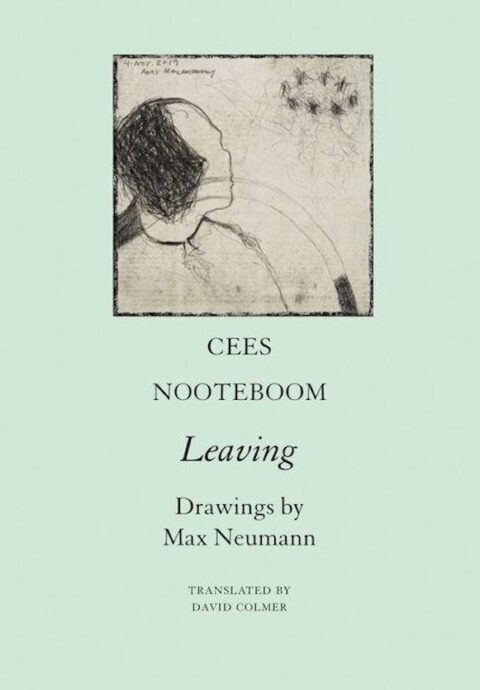Three Poems from Leaving: A Poem from the Time of the Virus
The end of the end, the man in the winter garden
asked himself, what could that be?
If nothing else, he thought, not any kind of sorrow.
He looked outside and saw a cloud that looked
like a cloud, as grey as lead, too heavy
for every balance, the bare fig against the wall
with the thousand-year-old stones,
the geese next door, their disapproval,
the way the night needed to be set right,
the grammar of expropriation, nobody
themselves anymore, not a single apparition,
withdrawal after defeat
but no destination.
/ / /
Dit vroeg de man in de wintertuin zich af,
het einde van het einde, wat kon dat zijn?
Het leek hem geen enkele vorm van verdriet,
hij keek naar buiten, zag een wolk die er uit
zag als een wolk, loodgrijs, te zwaar voor
elke weegschaal, de ontbladerde vijgenboom
tegen de duizendjarige stenen van de muur,
de ganzen van de buren, hun censuur,
hoe de nacht gecorrigeerd moest worden,
de grammatica van onteigening, niemand
nog zichzelf, geen enkele verschijning,
terugtocht na de nederlaag
maar geen bestemming.
* * * * *
Don’t walk away. Stay with this gentle
view of a summer’s evening, peace,
a conversation on the water, whispering,
murmuring that washes away
disaster. He hears the horse
in the meadow, a last bird on the wing,
don’t get up, dispel the danger,
don’t be afraid of the shape
of the face without eyes,
the woman with hair of rope,
the disembodied mouth,
don’t let them enter the sleep
that is yours.
/ / /
Loop niet weg. Blijf bij dit zachte
gezicht van een zomeravond, vrede,
gesprek aan het water, gefluister,
gemurmel waarin het onheil
verdwijnt. Hij hoort het paard
in de weide, er vliegt nog een vogel,
blijf liggen, verjaag de gevaren,
wees niet bang voor de vormen
van het gezicht zonder ogen,
voor de vrouw met de haren
van touw, voor de mond zonder
lichaam, laat ze niet toe in de slaap
die van jou is.
* * * * *
I was walking on the longest road, the road
that doesn’t go anywhere. Caverns, an empty landscape
the colour of sand and straw. There were others
with me, friends, brothers, lovers
and they kept saying goodbye, turning left
or right, disappearing like ghosts,
each alone in their solitude. They didn’t look back, they
knew where they were going, they traced straight lines
through emptiness. I saw them go, the people
of my life, walking slowly out of my and
their existence. I thought about them as long
as I could see them, listening for the sound of their far voices,
made of air.
/ / /
Op de langste weg liep ik, de weg
die nergens heen gaat. Spelonken, een leeg landschap
met kleuren van zand en van stro. Anderen liepen
met mij mee, vrienden, broers, geliefden
en steeds namen zij afscheid, sloegen linksaf
of rechtsaf, verdwenen als schimmen,
elk voor zich eenzaam. Ze keken niet om, ze
kenden hun doel, ze trokken rechte lijnen
in de leegte. Ik zag ze gaan, de mensen
van mijn leven, ze liepen langzaam uit mijn
en hun eigen bestaan. Ik bedacht ze zo lang
ik ze nog zag, hoorde van ver nog hun stemmen,
geluiden van lucht.
* * * * *
 On December 8, 2021, Seagull Books published Leaving: A Poem From the Time of the Virus (Afscheid: Gedicht uit de tijd van het virus), an English translation of Cees Nooteboom’s fifteenth book of poems, with drawings by Max Neumann.
On December 8, 2021, Seagull Books published Leaving: A Poem From the Time of the Virus (Afscheid: Gedicht uit de tijd van het virus), an English translation of Cees Nooteboom’s fifteenth book of poems, with drawings by Max Neumann.
For a look at David Colmer’s earlier translations of Nooteboom’s poetry and background on the poet, see Ron Slate’s reviews of Light Everywhere (2014) and Self-Portrait of an Other (2011).
Thank you for publishing these!